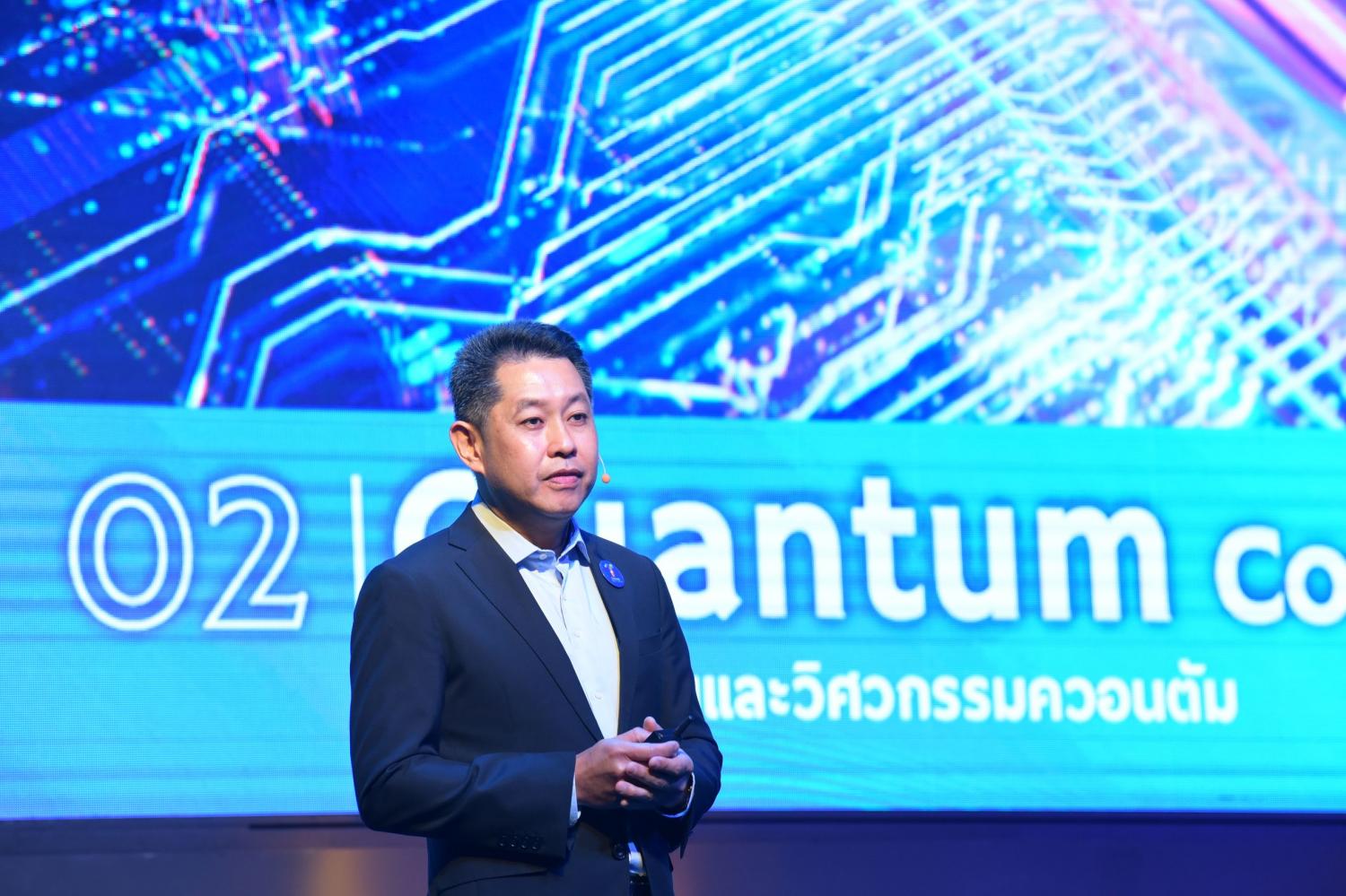
5G and 6G cellular networks, quantum computing, artificial intelligence (AI) and mobility service are among the key technologies that will have the most impact on the public in the next five years, says the National Science and Technology Development Agency (NSTDA).
"The advancement of science and technologies will improve people's lives and reduce social inequality, while making an economic impact," Narong Sirilertworakul, president of the NSTDA, said at the agency's annual technology conference yesterday.
The 5G mobile network is not only 20 times faster than 4G, but also helps connect other technologies, namely AI, big data, cloud and the Internet of Things (IoT).
Although 6G technology is still in the early stages, it's expected to be more than 1,000 times faster than 5G, Mr Narong said.
He has seen the rise of quantum computing and engineering, while higher internet speeds for the IoT and sensor technology are key to driving data usage. Powerful computing is needed to help solve complex tasks, such as decoding DNA.
Global tech firms like IBM, D-Wave, Intel and Microsoft are moving towards these areas.
Mr Narong said AI will be important in the future because it can perform highly precise medical treatments.
AI, he said, will not replace humans, but instead work and learn together with humans, assisting people in performing medical diagnosis.
By 2030, it's estimated that AI will have a global market value of US$16 trillion, nearly half of which will stem from China.
There are still some challenges facing AI technology, such as producing inaccurate results if biased data is put into the system, according to Mr Narong.
Large cities are also moving towards Mobility as a Service (MaaS), which features the integration of various forms of transport services into a single mobility service based on demand.
The concept is to allow the use of transport services without the need to own a vehicle, Mr Narong said, adding that the Uber and DiDi apps are pursuing this service.
Frost & Sullivan, a research firm, forecasts the MaaS market to reach $1 billion in 2019, up from $140 million in 2018.
By 2028 the market could hit $1.75 trillion, according to another firm, BIS Research.
Mr Narong said Thai companies, universities and the NSTDA are carrying out research into a perovskite solar cell that can be used in electronic products because the material is lightweight, flexible and durable.
The National Metal and Materials Technology Center under the NSTDA, meanwhile, is researching new materials designed to work with solid-state lithium-ion and lithium-air batteries. Such materials are expected to lengthen the life cycle, reduce costs and boost efficiency.
Mr Narong said exoskeletons are expected to gain ground and assist the disabled in pursuing a more normal life, allowing patients who cannot walk to get around much easier.
The market for exoskeleton technology is expected to hit $3 billion in 2025.
Some 50 exoskeleton-related firms are in operation around the globe, three of which are listed on the stock market.
Mr Narong said microbial multifunctional fibre is another interesting technology that can be applied to food to create a better taste. It can also be used as an artificial skin and to replace certain bones.
Another technology is personalised cancer vaccines, he said, adding that computer software can be used to analyse normal and cancer cells for patients to produce neoantigen vaccine for cancer treatment. Chulalongkorn University is conducting research.